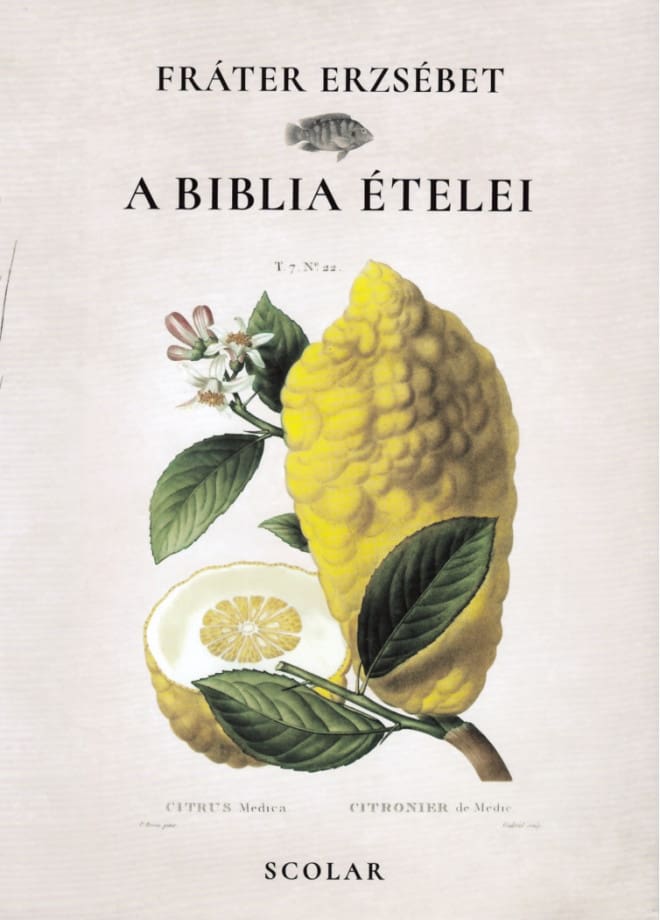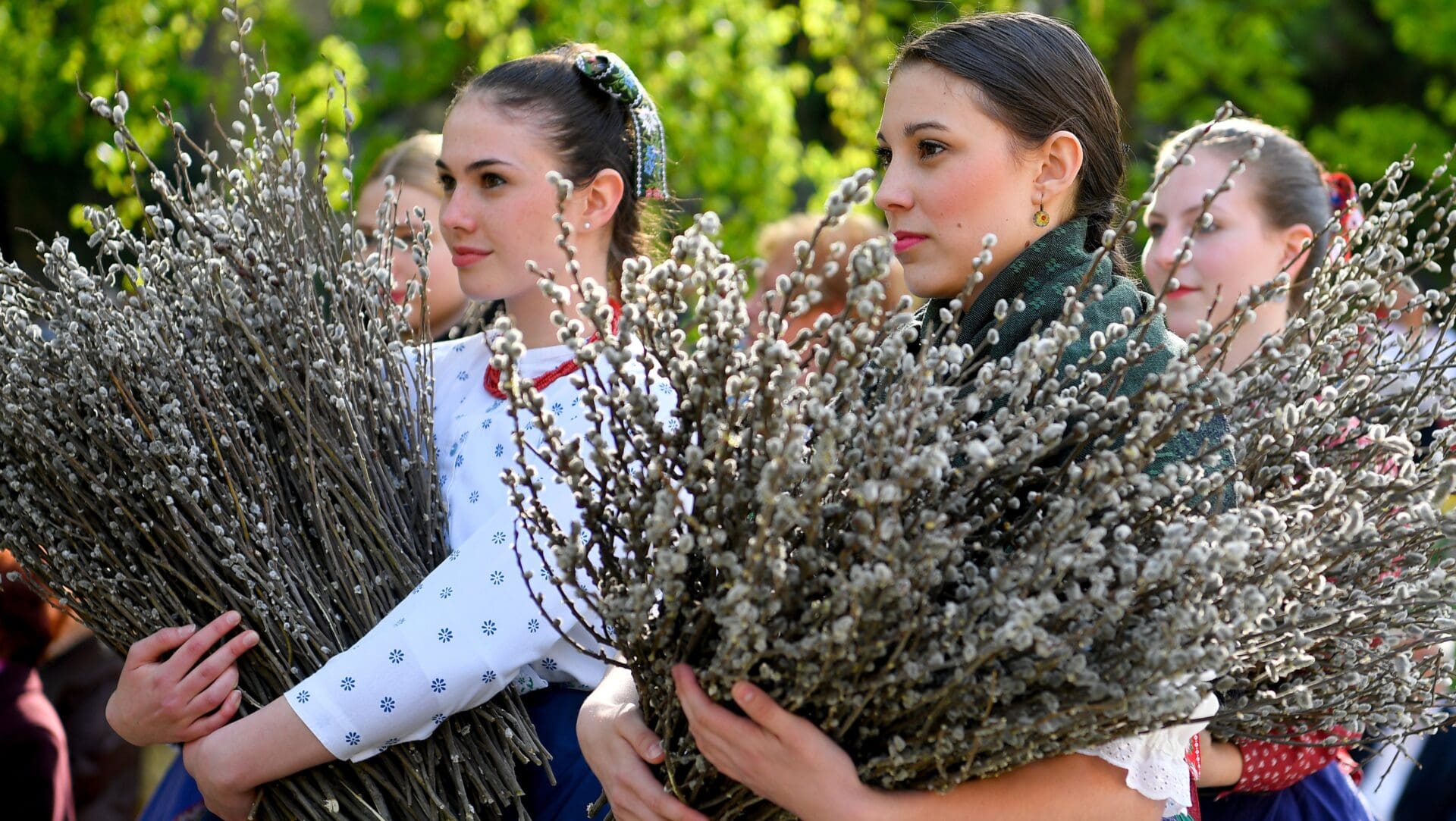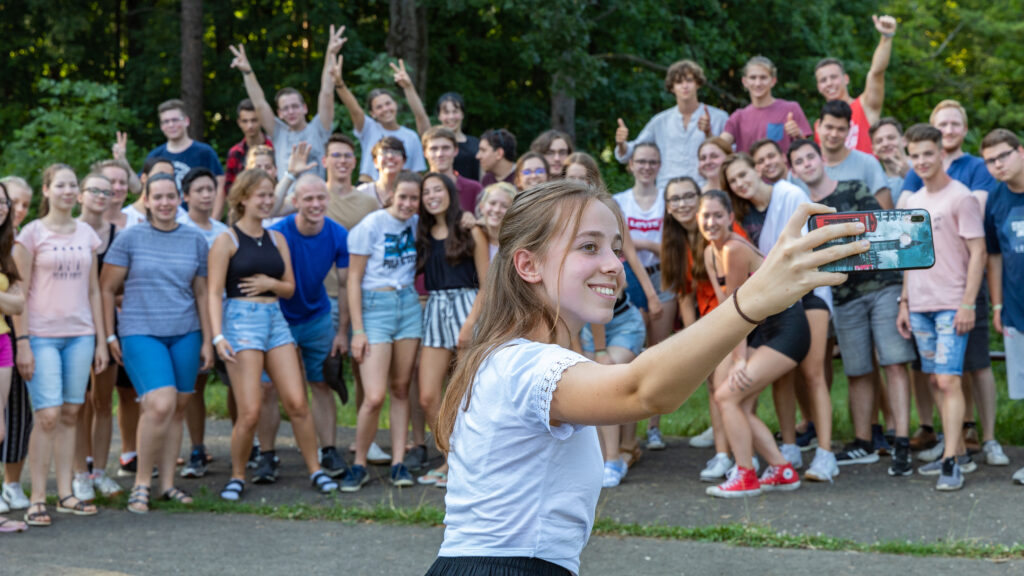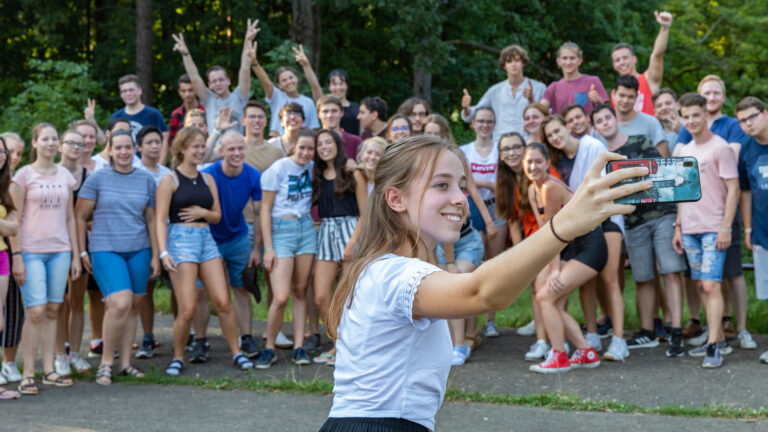The following is an article written by Orsolya Ferenczi-Bónis, originally published in Magyar Krónika.
The uncertainties of the past few years have made traditions even more important; by reviving Hungarian Lenten customs we may also raise hope that order will finally be restored in the world.
Lent, the period from Ash Wednesday to Holy Saturday, is a time of repentance and preparation for Easter in the Christian Church, a time of spiritual and physical purification. During Lent in recent years, we had to face several challenges: the first phase of the pandemic in 2020, another wave of COVID the following spring, and two years ago, at the end of February, the outbreak of the Russo–Ukrainian war. These events have shaken our lives in ways we could never have imagined before, making our familiar world feel much less safe. However, as with all crises, these events have had a positive impact on society as well: forums have been set up to organize aid, and donations have poured in from all over the world. Besides, individual sacrifices and community efforts have also shown that there is still hope because when there is trouble, we Hungarians can work together—as we have done so so many times in our history.
It is perhaps no coincidence that our Lenten traditions also include some elements that promote cooperation, while others are about cleaning up our environment or purifying our bodies and souls. By transposing these into the present day we may gather much needed strength in these difficult times.
Outdoor Activities: Hiking, Excursions, Pilgrimages
Fasting is a deliberate abstinence from something, and Lent was traditionally characterized by prohibitions on eating and entertainment. Yet customs have developed that allow young people to meet and play simple outdoor games during these weeks. One of these was the battle between Voivode Cibere (cibere is a word of uncertain etymology, referring to various types of sour soups) and King Konc, in which two figures representing Lent and Carnival would clash for the community’s entertainment. As their names also suggest, Voivode Cibere represents the Lenten food, a soup fermented from bran, and King Konc (konc meaning meaning ‘marrowbone’) represents fatty, meaty food. Traditionally, they clashed twice a year, once at Epiphany, when King Konc was victorious and the Carnival began, and again on Shrove Tuesday when Voivode Cibere prevailed, and thus Lent began. During Lent, young people also played various outdoor ball games or tag. Another typical Lenten game for girls was circling or other traditional round dances, as these were not considered typical dance forms forbidden in the Lenten period.
Tip: After the cold and dark winter, outdoor activities are much needed to enjoy the blessing of early spring sunshine. In the early spring days, we can complete the second shortest section of the National Blue Trail, go hiking, go on a pilgrimage in the Pilis Mountains, or explore the Bódva Valley.
Back to Nature
Lent coincides with the awakening of spring, so there are many customs associated with the gathering of green branches and catkin. Palm Sunday commemorates the entry of Jesus into Jerusalem and is marked by the blessing of catkin: it was used to ward off the evil eye as well as thunder and lightning, and for healing, too. On Palm Sunday it was customary to organize a procession of singing with green branches representing the arrival of spring, and in another procession called ‘villőzés’, small groups of girls carried around decorated branches or trees called ‘villő’, representing spring. The willow branches were also associated with fertility magic and marriage predictions.
Tip: We can walk among green foliage and flowering branches also if they are still on the trees or bushes. Children need to spend enough time in nature. As Judit Gál, the developer of Rousseau’s Nature-Based Kindergarten Education Programme, a nature-friendly kindergarten programme, put it in a previous article of Magyar Krónika: ‘Our children learn to regulate themselves because they can explore the world at their own pace and discover that there is no freedom without rules—if we trample a flower, it won’t grow again, if we shout, the animal will run away, and if we don’t take care of the magnifier, next time we won’t be able to watch the bugs.’
Cleaning up Our Home, Cleaning up Our Environment
With the arrival of spring and the renewal of nature, people have traditionally sought to clean up their environment, too. As part of Hungarian folk customs, there were so-called ‘no work’ days, such as Good Friday, when people did not do any work: they did not light fires or bake bread. Farming and animal housing were also forbidden, except for some that were customary to be done precisely on Good Friday, such as stamping cattle or sowing potatoes. It is interesting to note that this day was also a time of water-related customs, as our ancestors attributed beauty, purification, and healing powers to the water of Good Friday. There is no doubt that ‘no work’ days are still required after the winter, as we need at least a full day of rest to get on with our daily lives and clean up our environment.
Tip: Decluttering always starts with removing what we no longer need, which we can start, for instance, by keeping our home simple or using natural cleaning products.
Purification
Last but not least, the most typical Lenten custom is to avoid eating meat. Instead, it is a good idea to choose a diet rich in vegetables and plant-based ingredients to help cleanse our bodies.
Tip: This is explained in detail in the book on the plants and foods of the Bible, written by Erzsébet Fráter.

And when it comes to the practical side of things, we can find beautiful vegetables at, for example, the MagosVölgy Ecological Farm, which we wrote about earlier in the Hungarian Chronicle.
Related articles:
Click here to read the original article.








